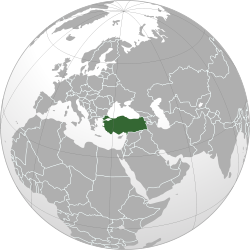
Algeria on Sunday sent more anti- riot troops to the province of Ghardaia, vowing not to withdraw any units until calm has been restored
Monday, March 17, 2014
No comments
Interior Minister Tayeb Belaiz told reporters in downtown Ghardaia, 600 km south of Algiers, that local authorities and interim Prime Minister Youcef Yousfi agreed to open an investigation to determine the causes behind sectarian clashes between the Arab Chaamba community and the Mozabite Berbers of the Muslim Ibadi sect.
Belaiz added that interim prime minister pledged to bring to justice all people involved in the conflict that has been shaking Ghardaia for more than three months and has claimed the lives of more than 13 people, three of whom were killed late on Saturday.
The prime minister rushed to Ghardaia on late Saturday, as the government attempted to contain the growing violence in the desert city.
The clashes between Mozabite Berbers and Arabs started in December 2013 in different parts of the city and elsewhere in neighboring localities. After long weeks of violent clashes, the shaky truce established by the government and elders of the two parties broke.
Some 3,000 anti-riot troops were deployed in this city that is strategically located near the oil and gas rich regions in the Algeria's desert.
On Saturday, the governor of Ghardaia said that interior ministry decided to deploy more anti-riot troops in the city to cope with escalating sectarian violence.
So far, more than 13 people were killed during these clashes and around hundred were wounded, while many stores, farms and homes were set on fire.
In recent years, increasing reports of violence have emerged in different localities in this desert province of 200,000 inhabitants, which was previously known for as a quiet, tourist destination region.
______
Source: Global Times
















































